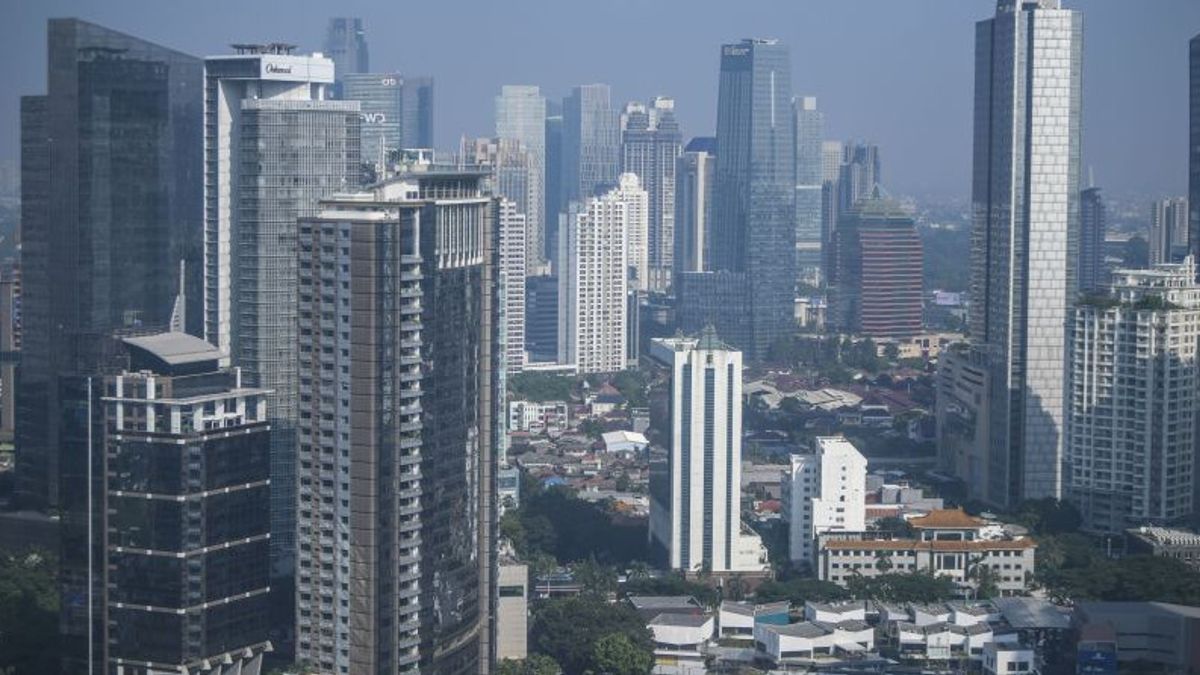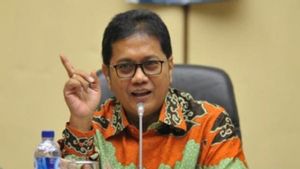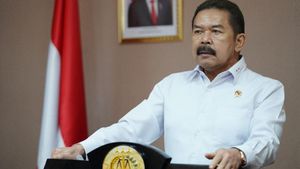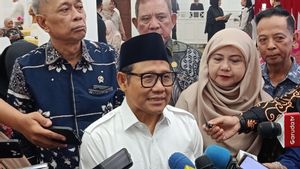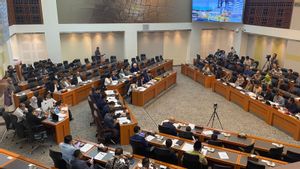Jakarta - Sunda Kelapa, Batavia, Jayakarta, Jakarta. Whatever the designation of this one region on the island of Java, in any era, it is always synonymous with the center of activity. From the past until now, ranging from not the capital, becoming the capital, to the business city.
Decade, even hundreds of years of Jakarta's progress as a city did not necessarily disappear, after Law Number 3 of 2022 concerning the Capital of the State was issued. Precisely the city of Jakarta was given a more ambitious target after being shifted from its throne, becoming a global city caliber.
The Jakarta Smart City Management Unit noted, there are a number of things that need to be met if Jakarta wants to reach that high target.
First, building an established and globally connected economic sector. One indicator that must be met by Jakarta as a global city is the existence of a Jakarta company in the list of 500 top companies in the world.
Second, the creation of skilled workers in the service sector, as well as the development of research and innovation. Jakarta needs to have its own characteristics in the field of information technology.
Third, Jakarta's comfort to be inhabited.
Fourth, aside from being an economic center, Jakarta must act as a center for tourist destinations, like Singapore or London.
Fifth, Jakarta has a clean and sustainable environment. For the latter, it is Jakarta transportation connectivity, both intra and intercota.
Of all the things that must be met, the comfort of Jakarta to be inhabited and the sustainability of the environment becomes vital so that the public is more comfortable living in Jakarta, so that other points can be overtaken.
Jakarta balance
Reported by Antara, Tuesday, November 21, always whispered and predicted from the past until now that Jakarta will sink because of the shrinking ground.
Of course this is not ideal if Jakarta still wants to proceed to the global city. There are various factors that contribute to making predictions more real, namely continuous physical development, climate change that causes rising sea levels, as well as land reduction.
Flooding becomes a necessity. It's no secret that Jakarta is the most loyal flood customer every rainy season. So loyal, there is a separate note made by the Meteorology, Climatology and Geophysics Agency (BMKG) about the big floods that have hit Jakarta, starting from 1918 to the current era. Every February, on a number of occasions, never flooded sweeping the capital.
In addition to the records from the BMKG, there is also the Center for Hydro-Oceanography of the Navy (Pushidrosal) which publishes the tidal flood calendar that has submerged Jakarta. Initially, the calendar was used for navigation at sea, but as it developed, the calendar was also used as a base for flood disaster mitigation.
However, knowing it is not enough. DKI Jakarta began to take steps to anticipate the arrival of the flood. For example, the mass mutual cooperation movement throughout the city to clean the water channel. The movement involved 2,000 people, and hundreds of heavy equipment were also deployed.
Not spared, there are also revitalization of various reservoirs and reservoirs, in order to prevent overflowing water.
In addition to flooding, Jakarta is also filled with thick pollution due to motor vehicles, industry and prolonged drought. This issue led to a decrease in the quality of health due to respiratory infections, as recorded by the DKI Jakarta Health Office.
In August, the DKI Jakarta Health Office said that pollution aggravates the risk of chronic diseases or non -communicable diseases, such as pneumonia, asthma, hypertension, and heart disease.
Thanks to the cooperation and efforts of various parties, including the central government, there is now a decline in the level of pollution. A number of businesses that are intensified, including emission test tickets, urban farming, increasing electric buses, and spraying water mist into the air.
Not only that, even in the construction of a residential, the DKI Jakarta Provincial Government issued a Governor Regulation Number 31 of 2022 concerning the Spatial Planning Plan for the Jakarta Planning Area. In it, various regulations on making homes that are integrated with efforts to improve the quality of the environment.
So, besides functioning as a regulation to create a decent residence, these provisions can also overcome environmental problems in Jakarta, such as pollution.
These rules include the provision of retention ponds, biopori or infiltration wells, the application of principles, such as zero run off (zero runoff), zero delta q, applying recycling of waste, and prohibiting groundwater use if it has received a clean water network .
Facilitating metropolis people
Environmental issues are not the only focus of development that must be pursued. There is an effort to improve human quality which is a demand in building a global city.
As a city that becomes a fusion (melting pot) for the culture of similar cities, a vehicle is needed for residents or people who are active in Jakarta to express, interact, and do activities.
DKI Jakarta Cipta Karya, Spatial Planning and Land Office noted that there are several things that need to be possessed by public spaces, namely its sustainability, access, inclusive, and safe, to ensure the smooth running of the community in social interaction, carrying out cultural and recreational activities.
Public space itself is created organically or by itself, as happened in the Citayam Fashion Week phenomenon in the Viral Hamlet in 2022. The place that was originally for hanging out, then transformed into space to show existence.
اقرأ أيضا:
The DKI Regional Government made a number of efforts to realize various public spaces, both in the form of green open spaces, and in other forms, such as plaza, sports arena, and so on. In addition, they also helped encourage the contribution of developers or the private sector in providing public space by providing various incentives.
In addition to the expression space, health is also a vital part in facilitating the citizens of Jakarta. By utilizing technology, the capital now provides digital -based health services. JakShat also provides details about various existing hospitals, so now choose new health facilities as easy as window shopping in Lokapasar.
In addition, mental health is also increasingly considered and discussed more intensely for the public to reduce stigma about mental health problems. As did the DKI Health Office in the Soul Healthy Program, which aired every Thursday on the Youtube channel.
Although the preparation of infrastructure, facilities, and infrastructure has been in such a way, but no less important is to build the habit of people to behave like humans in the global city. One of them, as in terms of paying attention to waste production.
DKI Jakarta Regional Development Planning Agency said that every day, Jakarta produces more than 8,400 tons of waste per day, which 49.87 percent is easily decomposed. From that percentage, 80 to 90 percent is food waste or food waste.
The public also needs to be wiser in producing waste, because with the production that touches the number, the capacity of waste treatment will not be able to compensate.
Ambition to make Jakarta a global city needs to be done holistically and requires the participation of all groups, including people in the Megapolitan area.
The English, Chinese, Japanese, Arabic, and French versions are automatically generated by the AI. So there may still be inaccuracies in translating, please always see Indonesian as our main language. (system supported by DigitalSiber.id)
